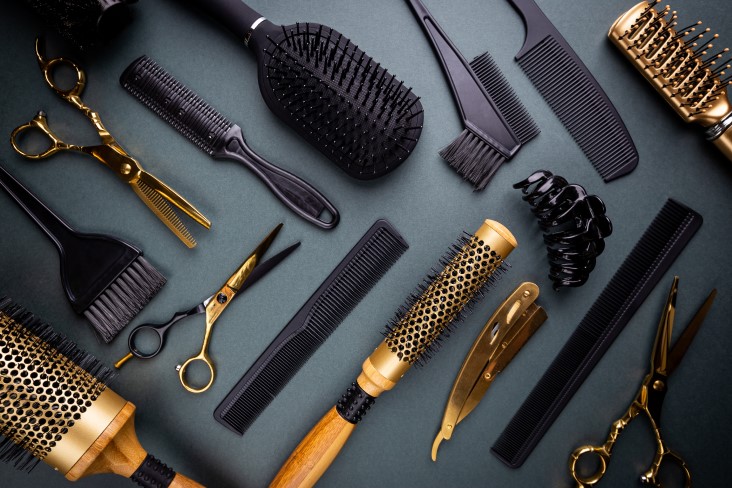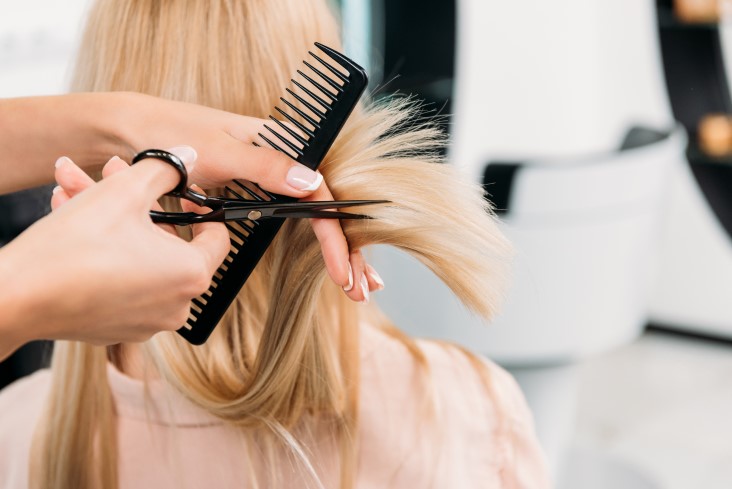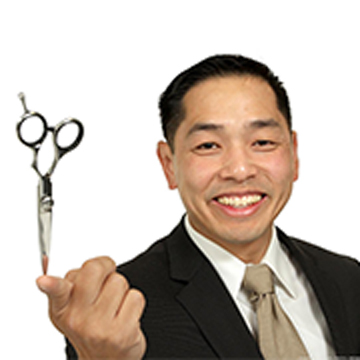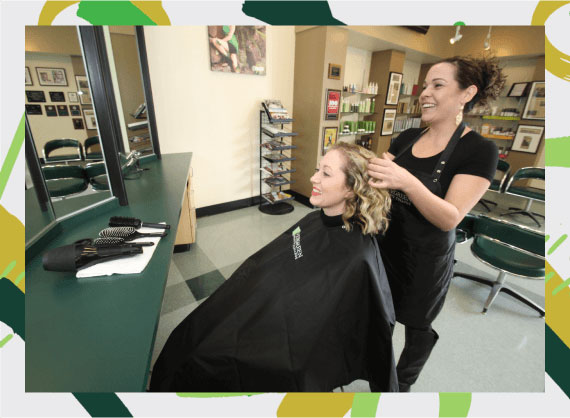5 Important Things You’ll Learn During Haircutting Courses

petrrgoskov – istockphoto.com
A haircutting course is designed to teach you all the important tools you need for haircutting. However, you may not naturally understand what this course will help you learn. No matter where you’re going to beauty school, there are many things you’ll learn during this kind of cosmetology program.
If you’re hoping to pursue a professional career in haircutting, there are many essential skills you’ll need to learn. Of course, hands-on training is generally important, but you might be surprised to learn that your training hours will cover far more than just “how to cut hair.” Experienced professionals need to know quite a lot to receive their cosmetology license and succeed in the beauty industry. Here are five things you’ll learn as part of a haircutting course.
1. Different haircutting techniques
Of course, you’ll learn various haircutting techniques within a haircutting course. Here are just a few of the different techniques and styles you might learn:
- Basics of hair cutting and hair coloring
- Handling different hair types
- Understanding hair texture
- Styling techniques for different textures of hair
- Trimming and managing facial hair
- Using a curling iron safely
- Installing hair extensions
- Styling artificial hair
If you’re taking a specific barber program, you may also learn advanced techniques for handling facial hair and masculine cuts. Some cosmetology students could also learn some basic skin care information, like skin care options for different skin types. Esthetics programs tend to focus more on skincare-related options, like makeup application, eyelash extensions, and nail services.
2. Sanitation and hygiene within a salon
When you work in a salon, you need to make sure you’re following all sanitation and hygiene requirements. Because you work with many different clients and handle both the hair and scalp, which can transfer bacteria if you’re not safe, it’s critical that you manage sanitation and hygiene effectively. License requirements typically mandate at least a specific number of training hours on the potential risks related to sanitation and hygiene, as well as safety requirements related to chemical reactions and allergy information. All of this information helps you keep your clients safe.
3. Product knowledge and marketing
As a hairstylist, you’ll need lots of general product knowledge. Even if you’re not selling products directly to your clients, you’ll still need to know what the best products are for different hair textures, the best options for different haircare needs, and more. Even knowing what hair brush or hair attachment comb you should use for a specific hairstylist need can be product-related information.
Marketing is also extremely important. Not only may you need to be able to explain advanced-level hair products to your clients, but you’ll also need to learn how to market yourself, as most hair stylists are self-employed. A great haircutting or barber school will give you information about products and marketing in a way that helps bolster your future career.
4. Business management
Whether you stay as a hair stylist forever or eventually move to a different position in the salon and barber industry, such as being a salon owner, business management is an extremely important component that not enough programs go over. If you’re self-employed, business management will help you understand how to spend money on your business correctly, as well as how to keep track of the money you’ve spent in a way that you can prove these purchases to the IRS later.
5. Client relations
While it might not seem especially important in comparison to meeting licensing requirements and understanding how to handle hair, working with real clients is one of the most important parts of having a long-lasting career in cosmetology. This is because it allows you to understand how to make your clients feel comfortable in your chair. The more comfortable they feel, the more likely they’ll be to come back to you.
Learn all the skills you need to succeed as a haircutting professional

LIGHTFIELD STUDIOS – stock.adobe.com
If you want to learn all of these skills and more, it’s a good idea to start looking into haircutting programs. Evergreen Beauty College is a great place to start. With an expansive and thorough program, Evergreen Beauty College can help you move toward becoming a hair professional as quickly as possible. Regardless of what you’re hoping to eventually do as a hair professional, reach out today for more insight into your next step.
FAQ: Important Things You’ll Learn During Haircutting Courses
Are there prerequisites for cosmetology school?
Cosmetology school usually only has two prerequisites. Generally, you only need to have a high school diploma or GED and to be at least 18 years old. As long as you meet both of these, you’ll usually be able to talk about enrolling in a cosmetology or hairstyling school. If there are any other prerequisites, you can talk to the recruitment official at your preferred school to ask about those prerequisites.
What’s the difference between cosmetology and haircutting?
A cosmetology program and a haircutting program are very similar but not usually identical. While these two terms don’t have legal definitions and therefore have a wide range of uses, most organizations use “cosmetology program” to refer to a broad program that focuses on a variety of topics related to cosmetology, while “hair school” often focuses more precisely on the skills you need to have a successful career as a hairstylist. Every program is different, so talk to representatives from your specific program to learn more.
Do I need to take a cosmetology course to cut hair professionally?
If you want to become a successful barber or hairstylist, you need to take a cosmetology course. Even if your state doesn’t legally require it, every reputable hair salon or barbershop will require you to take a cosmetology course so that they can trust you understand how to go through this process without endangering your clients. To make your way toward a sustainable career in cosmetology or barbering, it’s a good idea to start talking to an expert about hairstyling and barbering programs.




